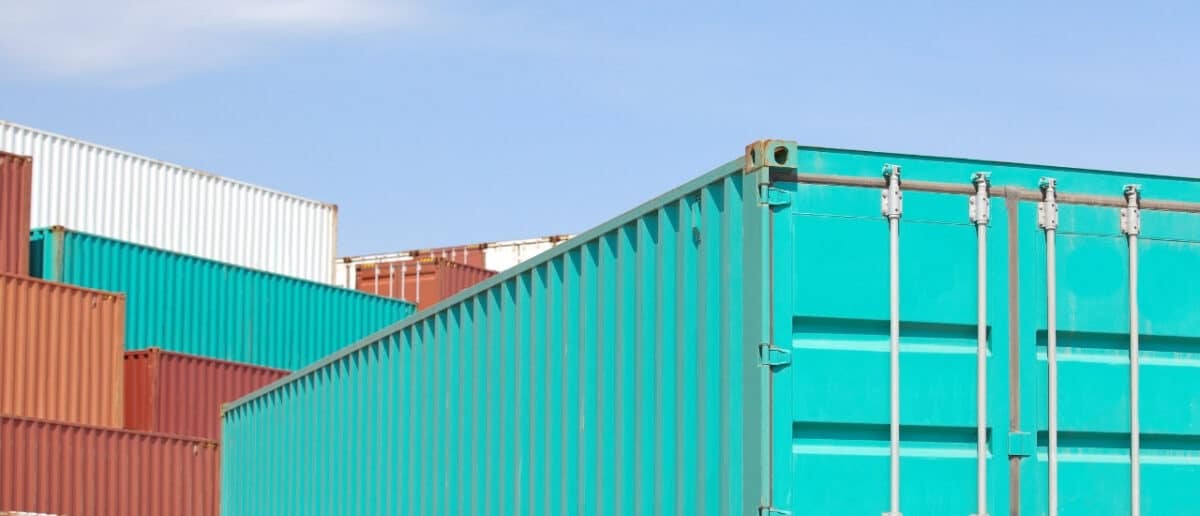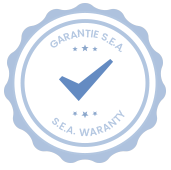If you are planning to purchase a shipping container, due diligence on your part will be necessary to avoid falling prey to fraudsters and scammers.
Buying a container is a considerable investment and you certainly do not want to lose your hard-earned money. Fraudsters often utilize the credentials of legitimate suppliers to scam people looking to buy a used container. Here, we will look at scam tactics fraudsters utilize and few things you can do to avoid falling prey to these scammers.
Shipping Container Scams
Shipping containers do not come cheap, are a significant investment, and price tends to increase in peak demand seasons. Scammers try to utilize this fact and offer containers for surprisingly low rates with the pretext of seasonal discounts. For instance, fraudsters will offer a twenty-foot container for about $1,500 while its actual market price is $5,000. Such lower pricing tends to lure buyers into making a mistake and they eventually get scammed.
Fraudsters also utilize business details of established and legitimate businesses to convince buyers that they are dealing with a genuine supplier. For example, scammers poach a reputed companies registration number to create their invoice and scam innocent buyers.
Avoiding Shipping Container Scams – 12 Things to Do
- Quoted Price: Check the price they are quoting for shipping containers. If it is well below the market price then it should make you cautious. Normally, you will find that quotations provided by legitimate suppliers are quite similar. When the quoted price is very low, it will indicate that you are probably dealing with a scammer.
- Sensitive Information: Avoid providing sensitive information such as bank or credit card details over the phone, via email, or on their website. Avoid making any deposits before you have verified that it is a legitimate business.
- Email Address: Examine whether emails are being sent to you from misleading or suspicious domain names instead of their website-based email addresses.
- Make a Call: Call the number they advertise and check whether the company sounds legitimate. Inquire about their containers and location so that you can verify whether they are correct. If the company never responds to your calls and only corresponds via email, you should be wary as reputable companies will always have a customer support team to respond to customers.
- Examine Business Details: Take various steps to verify that it is a legitimate business. Ask for details such as a business bank account (it should not be a personal account), address proof, business registration, Google location details, client reviews, liability insurance, etc.
- Container Inspection: Check whether the supplier is ready to allow inspection of container in-person by you or one of your representatives. This will help you assess the supplier’s trustworthiness. If your request is declined, then it would be a red flag.
- Search and Social Presence: Does the website show up in Google’s organic search results? If it is a very new website then it will not immediately show up on top of the search results. This will be a clear indicator of how long they are in business. Similarly, check their social profiles to know if they were created only a few weeks ago.
- Company Location: If you call the company and the representative speaks in a foreign accent then it should raise an alarm bell. Many scammers function from outside the country bases and catching them becomes a difficult task if money is transferred into their foreign account. You should ensure that you are allowed to make payment through a method where you can challenge and get the payment reversed by the bank if such a need arises.
- Industry Association Membership: Ask the company which industry association they belong to and check with that industry association to know whether it is a legitimate supplier.
- Quote from Other Suppliers: Call other container suppliers and ask for a quote. In addition, inquire whether they have heard about a competitor that is providing shipping containers for a considerably discounted price, mentioning the suspicious company’s name. If these legitimate organizations reply that they have never heard anything about such a competitor, then it should make you suspicious.
- Examine Warranty: Check the warranty the company is providing, Is it more than two years? There are cases where fraudsters were found to be providing guarantees of up to ten years. On the contrary, legitimate container suppliers offer a warranty in the six months to two years range only.
- Analyze Reviews: Examine whether they have received reviews on third-party sites and whether all these reviews appeared within a week or over a period of time. Additionally, it is not possible that each transaction will go perfectly for a container supplier and if the company has received five stars for all of its reviews, then it is not a good sign.
A Final Note
From the above details, it is clear that proper due diligence on your part will be necessary when you want to purchase a shipping container. When you thoroughly check everything, there would be a lesser chance of getting scammed and you will be able to purchase the right container for the right price.
If you want more information about how to perform a thorough analysis while contacting container suppliers, give us a call and we will help you. We will explain all the important details you will have to check to avoid falling prey to scammers.
The main thing is, you will have to spend some time on research and analyze all the details to be sure that you are dealing with a legitimate business. If the quoted price is very low, then ask for reasons why. If the answer does not seem convincing, it would be wise to avoid dealing with that company and best to find another supplier.


